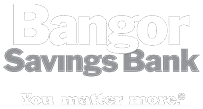
Money management skills and financial literacy are two things many adults wish they had more education on while growing up. This guide can help you begin your child's money education early, even before he or she starts school.
What is Money?
The first step is to teach your child what money is. Not just that it is something people exchange for goods and services; but you'll also want to teach them to understand the different values of currency, including coins and dollar bills.
Once your child has an idea of the value of money and how it works, teach your child about things that cost nothing, like playing with their friends at home, going to community parks in your town, or playing in the backyard. Then, work on the value of specific items that cost money like food, clothing, toys, and even gas that helps cars take them places.
Making Spending Decisions
Once your child has an idea of the value of money, it is time to allow your child to make a few small spending decisions.
The more practice your child receives making these types of decisions at a young age, the better able he or she will be able to understand the potential consequences of their financial choices in the future.
Encourage young children to think critically about money and how they would spend it.
Spending Plans
Spending plans are essential tools to help young children understand where money comes from, where they are spending it, and how it can be used to reach specific goals.
The University of Nebraska Cooperative Extension recommends having children answer three specific questions to establish their spending plans:
- How much money do they have?
- What is their spending goal?
- How much money do they need to accomplish that goal?
Sit down together and brainstorm a plan that will help accomplish his or her spending goals. Usually, this involves opportunities to earn more money, to save money by spending less, or some combination of the two.
Earning Money
Most money for pre-school aged children comes from parents and guardians. You can offer an allowance to help them make better financial decisions along the way, as well as opportunities to earn money so they can learn to equate hard work and accomplishments with monetary rewards as well.
Takeaways to Help Your Pre-Schooler Learn Healthy Money Management Skills
Children are never too young to begin learning the basics of financial literacy and how to handle money. This is how parents can help:
- Teach your pre-schooler what money is and how much it is worth.
- Allow children to make small spending choices now to prepare them for larger ones later.
- Work with your child about the importance of spending plans and saving money for the things they really want.
- Offer opportunities for your child to earn money and encourage their efforts.
Doing these things in a child's formative years will help them understand the value of money, its importance, and how they can control their spending rather than being controlled by it.
